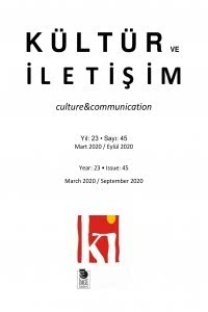Sabiha Zekeriya Sertel: Erken Cumhuriyet Döneminde Kadın, Muhalefet ve Basın
Türkiye’de feminist tarih yazımı veya kadının gözünden modernleşme/batılılaşma deneyiminin yeniden yorumlanması ile birlikte, ilk olarak resmi tarihin inşa ettiği kadın imgesi sorunsallaştırılmıştır. Bu da kişisel ve sosyal tarihleri “özel” alanda bırakılmış kadınların gündeme getirilerek kadın sorununun politikleştirilmesini ortaya çıkarmıştır. Aynı zamanda, kadın hareketinde yer almış kadınların işlerini, deneyimlerini ve düşüncelerini yeniden düşünmek ihtiyacı doğmuştur. Türkiye’nin ilk kadın gazetecilerinden biri olan Sabiha Zekeriya Sertel’in 1895-1968 hayatı ve düşüncelerini irdelemek hem günümüz hem de Cumhuriyet kadınlarının mücadelesini anlamlandırmak açısından özellikle değerlidir. Sabiha Zekeriya Sertel, erken Cumhuriyet dönemine egemen olan toplumsal cinsiyet paradigmasını eleştirmekten kaçınmamasına rağmen; pozitivist, ilerlemeci ve aydınlanmacı özellikleriyle, Kemalizmin modernleşme projesinin kararlı bir savunucusudur. Öte yandan, reformların uygulamada eksik yönleri olduğunu çekinmeden dile getirmesi devletin uyguladığı sansür politikaları nedeniyle sıklıkla mağdur olmasına yol açmıştır. Bu çalışma, Sabiha Zekeriya Sertel’in kadın konusu çerçevesindeki yayın faaliyetlerinin üç ana dönem üzerinden farklılaştığı tespitinden hareketle tasarlanmıştır. Buna göre, Mütareke döneminin kaotik ortamında Büyük Mecmua’da 1919 , kadınların ikincil konumu üzerine ilk eleştirel yazılarını kaleme alır. Bu dergideki yazılarında kadının kamusal hayat içerisinde eşit görünürlüğü ve Batılılaşma özlemiyle ilgili olarak kavramsallaştırdığı eşit haklar ilkesi üzerinden kadın sorununa yaklaşmıştır. şkinci döneminde, ABD’den Türkiye’ye döndükten sonra ülkenin hızlı dönüşümler geçirdiği yıllarda, Resimli Ay dergisinde başladığı “Cici Anne” köşesinde 1924-1930 ve aynı yapıyı sürdürdüğü Cumhuriyet gazetesindeki “Bana sorarsanız” isimli popüler yorum köşesinde 1930-1931 hâkim toplumsal cinsiyet kalıplarını sorgularken kadının toplumdaki ikincil konumunu kapitalist düzene içkin güç ilişkilerinin dinamikleriyle bir arada düşünür. şkinci Dünya Savaşı süresince faşizm karşıtı yazılar yazdığı ve kadın sorununa daha az eğildiği Tan gazetesi dönemi 1938-1945 ise üçüncüsüne karşılık gelir. Yazıda ayrıca Sabiha Zekeriya Sertel’in feminizme dair tutumunu anlamak için Türkiye’deki kadın örgütleriyle ilişkisine değinilmektedir.
Anahtar Kelimeler:
Türkiye, feminizm, basın, kemalizm, kadın, tarih yazımı, sosyalizm, modernleşme, demokrasi.
Sabiha Zekeriya Sertel: Women, Opposition and the Press in Early Republican Period
As a result of the feminist historiography or the re-interpretation of the experience of modernization/Westernization through the perspectives of women in Turkey, the image of woman built by the official historiography has been problematized in the first place. This paved the way for the politicization of the woman question by bringing the women whose personal and social histories had been left to the ‘private’ sphere to the fore. Meanwhile, a need to rethink the works, experiences and thoughts of women who took part in the women’s movement emerged. Examining the life and thoughts of Sabiha Zekeriya Sertel 1895-1968 , one of the first female journalists of Turkey would be worthwhile for understanding the struggles of women, both contemporary and Republican. With her positivist, progressivist and pro-enlightenmentattitude, Sabiha Zekeriya Sertel was a stubborn defender of Kemalist modernization project, even though she did not abstain from criticizing the dominant gender paradigm of the early Republican period. However, expressing the incompetency of the implementations of Republican reforms often led her to become the victim of the state policies of censor. The design of this study has been based on the observation that Sabiha Zekeriya Sertel’s publications in the framework of woman question roughly differentiated in three distinct periods. In this framework, she began to pen her first striking articles on the subordinated status of women in Büyük Mecmua magazine 1919 which was published during the chaotic atmosphere of the Armistice Period. Sertel’s approach in these writings was based on the principle of equal rights conceptualized with respect to women’s equal visibility in the public life and their desire to become Westernized. In the second period right after her return from the US and during which Turkey was passing through wide scale transformations, she continued to question the dominant gender roles, and analyze the women’s problem with a deliberate focus on the internal power relations of capitalism in her column “Cici Anne” in the Resimli Ay magazine 1924-1930 and again with the same conceptual structure in her popular column “Bana sorarsanız” if you ask me in the daily Cumhuriyet 1930-1931 . The last phase corresponds to a period when she focused more on pieces against fascism in the daily Tan 1938-1945 during World War II and wrote relatively less on women’s issues. The paper will also touch upon Sabiha Zekeriya Sertel’s relationship with the women’s organizations in Turkey, in order to better grasp her positioning within feminism.
Keywords:
Turkey, feminism, press, Kemalism, woman, Keywords historiography, socialism, modernization, democracy.,
- ISSN: 1301-7241
- Yayın Aralığı: Yılda 2 Sayı
- Başlangıç: 1998
- Yayıncı: İmge Kitabevi Yayınları
Sayıdaki Diğer Makaleler
Images of Suffering: Between the Obligation to Display and the Difficulty of Concealing
Yedinci Sanat Aylık Sinema Dergisinde Film Eleştirisinin Ana Çizgileri
“Özgürlük için Basın” II. Ulusal Konferansı’nın Ardından Notlar
Popüler Tarih Dizileri Bağlamında Televizyonda Tarih İnşası ve Politik Tartışmalar
Sabiha Zekeriya Sertel: Erken Cumhuriyet Döneminde Kadın, Muhalefet ve Basın
